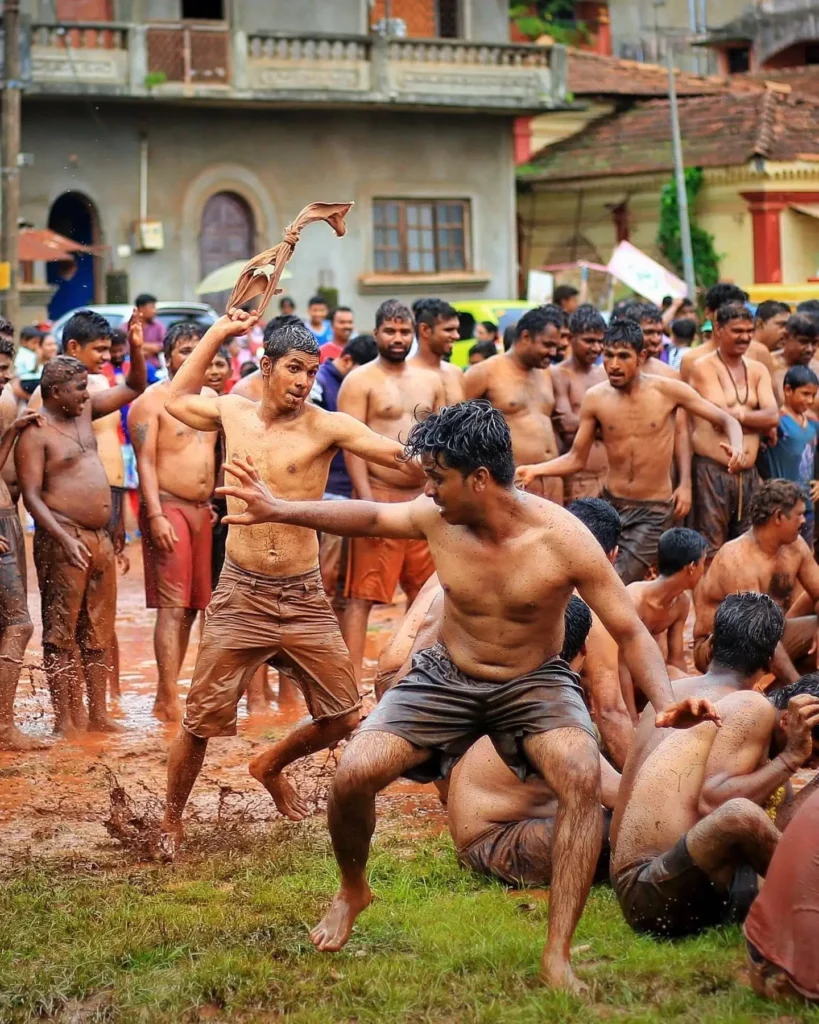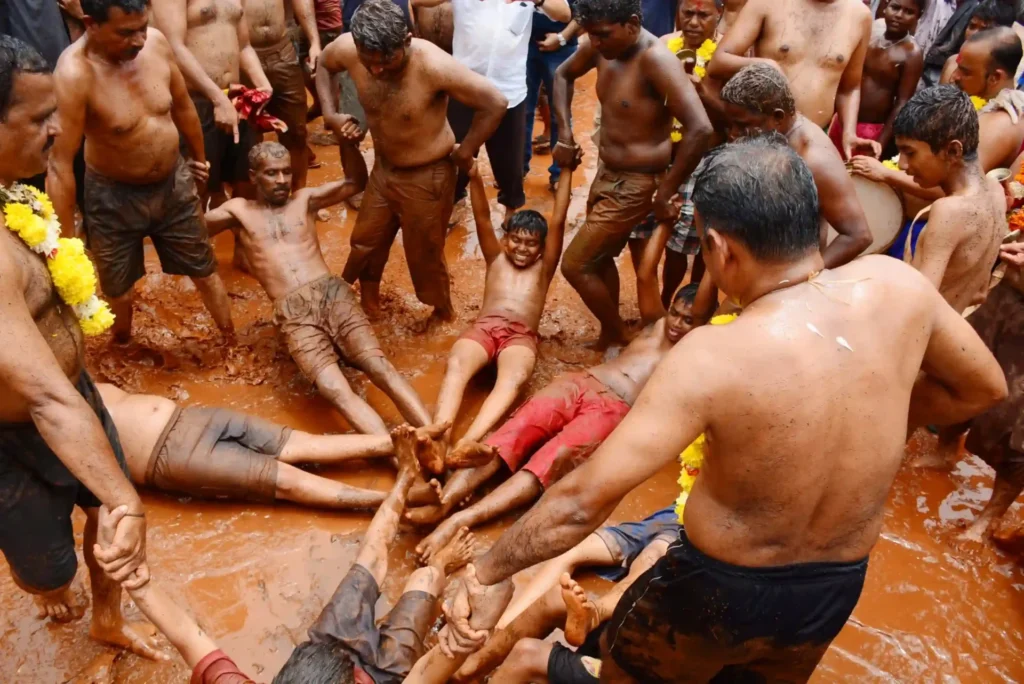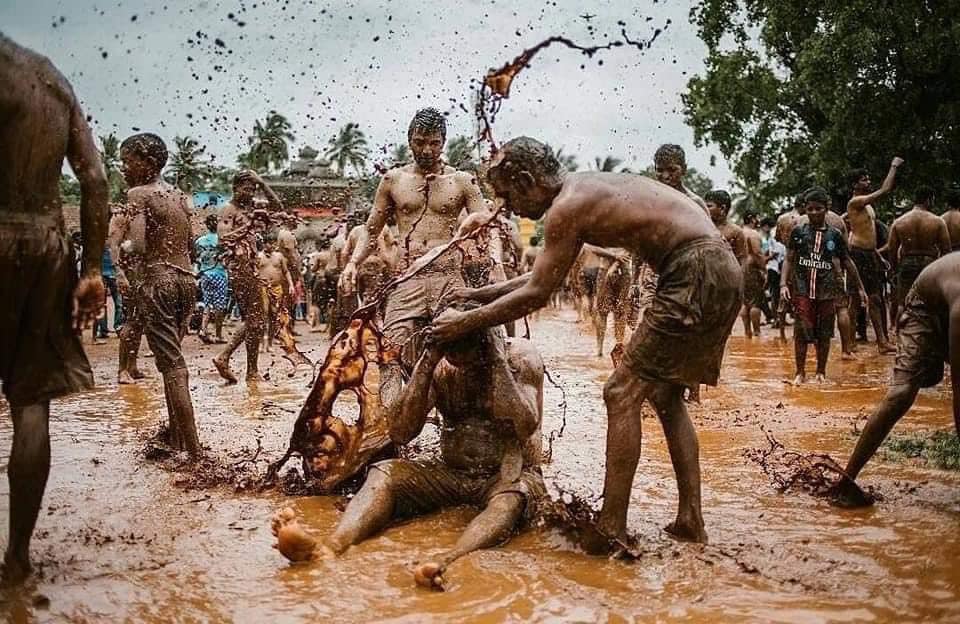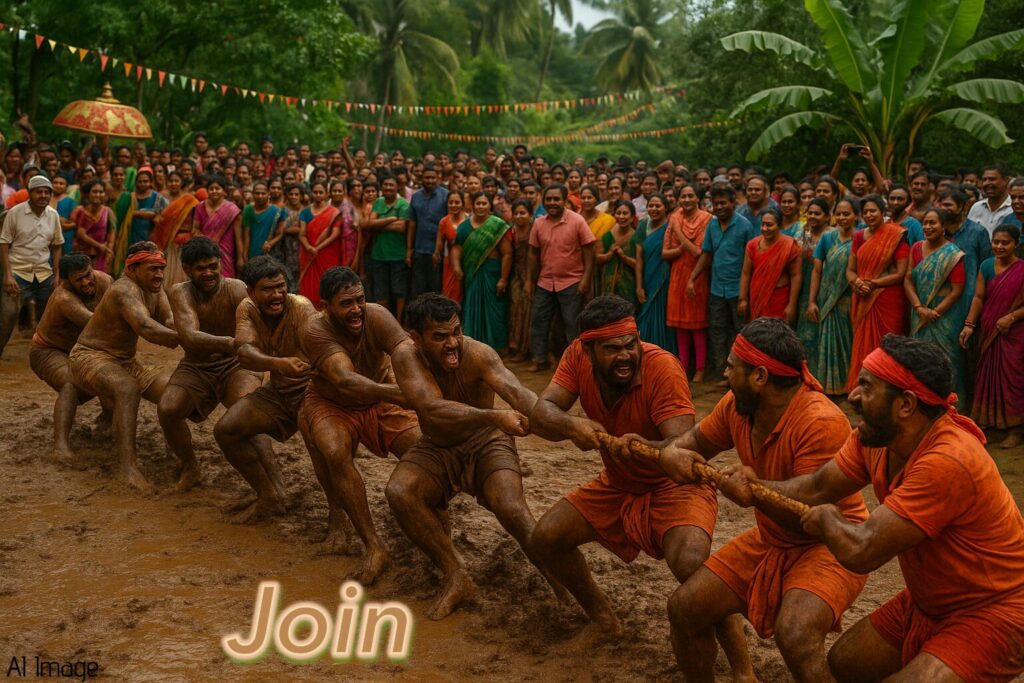Chikhal Kalo (Mud Festival):Splash, Slush & Smiles

I’ve seen many tourists chase that shiny “Golden Goa” experience, thinking it’s all about beaches, shacks, and Parties. But to me, and to those of us who grew up here, the real soul of Goa lives in moments like Chikhal Kalo and our other festivals—old traditions where families gather, rain falls, hearts connect, and mud becomes joy.
I absolutely love this festivals. There’s no act—just pure, muddy fun. The laughter echoing across those sticky red fields,Best Swiss Replica Watches Store UK >> 100% High Quailty Replica Watches. the splash of mud in the monsoon drizzle, the roar of delight—it washes away everything. And every time I return, even years later, the memory brings me calm—an never ending peace that feels like coming home.
A Goan Voice Speaks: Tradition, Roots & Pride
Folklorist Vinayak Vishnu Khedekar, from Verem, has spent a lifetime documenting our folk culture—writing about Shigmo, Deknni, Dhalo, and yes, festivals like Chikhal Kalo. He reminds us that these are not just celebrations—they’re bridges between our ancestors and us,New! Best Selling Breitling Replica Watches USA >> 2025 Cheap Fake Breitling For Sale. threading generations through rituals, songs, and shared laughter
When Khedekar describes the sight of farmers and families gathering in temple grounds, apply coconut oil on body , and jumping into the red mud—he’s painting not just a picture of play, but one of devotion, identity, and respect for Mother Earth. New UK Perfect Replica Watches Hot! Sale – High Quality 2025 Swiss Made Fake Watches.This isn’t touristy spectacle. It’s cultural heartbeat.
Also Read:Sao Joao Festival Goa: 5 Epic & Joyful Things to Do in 2025
Why It Still Moves Me
Deep-rooted connection: It’s our land, our water, our temple—and our history written with mud.
Unfiltered joy: No filters, no rules—just pure, communal happiness.
Tradition in motion: Every splash ties us back to Krishna’s playful spirit, and our village fields.
Emotional sanctuary: These moments wrap you in belonging—no matter where you’re from.
So, Here’s My Invitation to You:
If you happen to be in Goa this July—let go of those clean socks and white sneakers. Wrap yourself in coconut oil, step into the red earth, and laugh like a child again. Join us. Dive in. Let the mud and monsoon rekindle something real inside you.
Because memories fade, but the rhythm of this festival? It stays with you—like a heartbeat you can’t forget. Come find peace in the chaos. Come find us.
1. What is Chikhal Kalo Festival?

Chikhal Kalo (literally meaning “mud play”) is one of the quirkiest and most rooted festivals you’ll ever come across in Goa. Held during the monsoon in the sweet village of Marcel, Ponda, this festival is not just about rolling in the mud—it’s a celebration of Krishna’s childhood, community bonding, and a deep connection with nature.
It happens every year in July, on the 11th day of the Hindu month of Ashadh. Devotees, mainly men and boys, cover themselves in coconut oil and jump into thick slushy fields to re-enact Krishna’s playful childhood antics in Vrindavan. Imagine a full village playing football, kushti, gilli danda, and other games—in the mud!
Also Read:Goa in the Monsoon: A Local’s Guide to Rainy Days
2. Why Chikhal Kalo Celebrated?
At its core, Chikhal Kalo is a tribute to Lord Krishna. The mud represents the rustic charm of Gokul where Krishna spent his early years. The playful activities mirror the games He and His friends are believed to have played during their childhood.
It’s also deeply agricultural in nature. In rural Goa, the onset of monsoon is a big event—rain means planting, fertility, and life. So playing in the mud is symbolic: gratitude to the Earth, a prayer for good crops, and a time for joy.
According to Goa Tourism, this festival is also a way of connecting the youth with heritage. In today’s screen-heavy world, this is like nature therapy with devotion.
3. Where and When Is It Celebrated?
📍 Location: Devaki Krishna Temple, Marcel village, North Goa
📅 Time: 11th day of Ashadh
🕗 2025 Dates: Expected around 5–7 July 2025
The temple complex transforms into a sacred playground. Fresh water is poured into the fields around, creating thick, rich Goan mud. Coconut oil is applied to the skin to avoid rashes, and the games begin after the morning rituals.
This festival is men-only in terms of participants, but women and tourists are welcome to enjoy, click photos, and cheer from the sidelines.
4. What Happens During the Festival?
Here’s a rundown of what the day looks like:
🛕 Morning Pooja
The festival starts with a ritualistic worship of Lord Krishna at the Devaki Krishna temple. Priests perform abhishekam and poojas, and villagers chant bhajans.
🌧️ Mud Games Begin!

After the rituals, a special area filled with water and soft slush is opened. Men of all ages jump in to play:
Chendu Fali: Similar to football
Gilli Danda: A desi version of baseball
Mud Wrestling (Kushti)
Tug of War, races, balancing acts

No winners, no losers no referee —just pure joy.
Cultural Programs
By evening, the temple hosts traditional music, Goan folk dances, Bhajans, tabla, and dhol add to the festive energy.
5. Why You Shouldn’t Miss It
If you’re in Goa during July, Chikhal Kalo is a must-watch (or join if you’re local). Here’s why:
*You Won’t Find It Anywhere Else
This is not a beach party. It’s a mud party with 1,000+ years of tradition behind it. Goa beyond the beaches—this is that!
*It’s Like a Desi Holi + Rain Dance + Janmashtami
But all rolled into one, and in the mud!
* Connect With Real Goan Culture
Most tourists never get to see this side of Goa as very few visit goa during monsoon. It’s raw, it’s real, and 100% local. Fun For the Whole Family
Even if you’re not jumping into the mud, it’s a visual delight—photographers, vloggers, and curious kids love it.
* Eco-Friendly and Sustainable
No plastic, no artificial decorations. Just rainwater, red soil, and pure nature.
* Skin Benefits (Seriously!)
Local belief says the natural mud cleanses and cools the skin. Coconut oil makes it even better.
* Be Part of a Living Heritage
This isn’t a staged event. It’s a living, breathing tradition. Be respectful, and you’ll feel welcomed.
6. How to Reach Marcel Village
✈️ By Air:
Dabolim Airport: ~35 km
Mopa Airport (Manohar Intl): ~40 km
🚗 By Road:
From Panjim: 18 km (40 mins by car or bike)
Bus or cab options via Ponda route available
Also Read:Ultimate Guide to Bike and Car Rental in Goa
🚉 By Train:
Closest station: Karmali or Madgaon
Take a local taxi or rent a bike from there
7. Where to Stay Near Chikhal Kalo
Marcel is a quiet inland village, so accommodation options are limited and its just 19 kms and 30 min drive from Capital Panajim and easily accessible from any part of goa so accommodation is not a big issue.
Tips Before You Go
Wear old clothes if you’re planning to participate
Carry a change of clothes, towel, and plastic bag for your muddy gear
Apply coconut oil before entering the mud
Respect the rules of the temple (no shoes inside, modest dressing for women)
Photography is allowed, but ask permission before clicking locals.
Final Words from a Goan Heart
As someone born and raised in Goa, I truly believe festivals like Chikhal Kalo are the real soul of our land. It’s not about fancy events or big crowds—it’s about mud, laughter, family, and faith. It’s about going back to our roots and feeling proud of where we come from.
Every year when I see those muddy fields in Marcel, something inside me feels alive. It reminds me of childhood, of old stories from our elders, and of how connected we are to nature and each other. Even if I don’t jump into the mud, just watching brings a big smile and a strange calm.
So, if you’re in Goa during monsoon—skip the usual plans. Come to Chikhal Kalo. Feel the splash, listen to the bhajans, see the joy in people’s eyes, and maybe… just maybe… find a piece of peace for yourself too.
This is amchem Goa—raw, warm, and muddy. And we’re always happy to share it with you.
Also Read:7 Best Places to Visit in Goa in Monsoon – Calm & Hidden in Canacona
